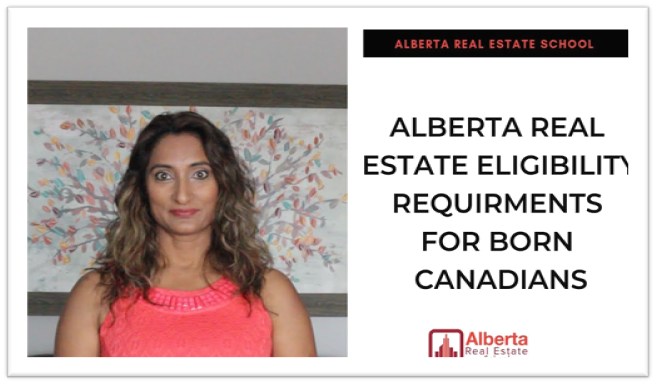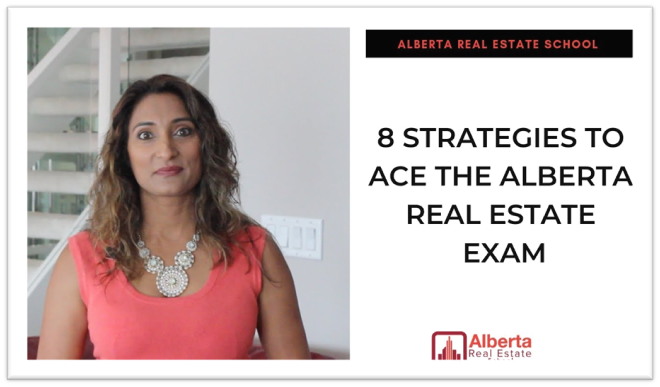RECA is the governing body that defines the laws and eligibility criteria for anyone who wants to make a career in the Real Estate Markets in Alberta. In terms of the eligibility, there are slight differences regarding where you’re born, in terms of what kind of identification documents you need, and also where you did your studies. Today, we will look at what are the Eligibility Requirements for born Canadians to get their Real Estate License in Alberta?
Real Estate Eligibility Requirements for Canadians in Alberta
- You must be 18 years of Age.
- You must be able to lawfully study and work in Canada.
- You must be able to provide specific Government-issued Identification.
- You must have a minimum of a Canadian High School Diploma or Equivalent
- You must be proficient in English.
-
Identification Documents
- Source Document – If you were born in Canada, then you will need to provide a copy of your Birth Certificate.
- Supporting Document – It could be a Canadian Passport, Driver’s License, Provincial ID Card, Treaty Status Card, Canadian Forces Identification Card or a Firearms Card.
2 Proof of Education
If you were born in Canada and you did your education in Canada, you can provide either of the following:
- High School Graduation Transcript or General Education Development Test (GED) Transcript.
- Post-Secondary Transcript from a Canadian University or College, showing one of the following:
- A Diploma has been granted,
- The Program was a minimum 2-year program,
- You have been granted a degree or Successful Completion of a minimum three, four Credit Academic Courses towards your Diploma.
If you were a person who was born in Canada, but did your education elsewhere, then you must provide:
- Assessed Non-Canadian Education Transcript, stating that it is at least equivalent to a minimum of a Canadian high school graduation diploma.
The Education Assessment must be completed by a Member of the Alliance of Credential Evaluation Services of Canada (ACESC) and the Education Assessment must be mailed directly to RECA by ACESC.
RECA will not accept the following as proof of education:
- Any Trade or Vocational Designation Certificates or Diplomas
- Apprenticeship or fast-tracked or Condensed Educational Programs
- Professional or Occupational Memberships, Certificates, Designations
- Any Non-Credit College or University Courses, Designations, Certificates or Diplomas, or Work Experience.
3 Proof of English Proficiency
With Canadian Education
- If your transcript indicates that you did your Grade-12 education from a Canadian High School, you do not need to provide anything additional.
- Or, if you graduated from a minimum 2-year Diploma or a Degree Program from a Canadian Post-Secondary Educational Institution, you do not need to provide anything extra. But you do have to show that this was an In-class Program, it was delivered in English Language, and it led you to achieve a Diploma or a Degree. So, if any of these are valid, you do not need to provide anything additional. You are Okay!
If any of those conditions are met, you do not need to provide any additional proof of English proficiency. You are all set.
Without Canadian Education
- Now if you did do your education elsewhere, then you do not need to provide any additional English proficiency requirements if your educational assessment, done by one of the ACESC members, shows that the instruction was exclusively in English.
- So, let us say you did your education, your degree, from Spain, for example, and your education was not in Spanish, but the language of delivery of instruction for that degree was in English, you are all set, so you don’t need to do that.
- It shows that you have successfully completed grade 12 English courses, even then, you do not need to provide any additional English proficiency requirements. And all of this must be indicated on your education assessment.
Those were the educational criteria and eligibility requirements for you if you are born in Canada for you to go through your pre-licensing program with RECA.
I hope you find this article helpful and get a deeper understanding of what the requirements are if you are a Canadian Citizen and are looking to get a real estate license in Alberta.

Get the complete checklist here if you are an Immigrant and wish to know the Alberta Real Estate Eligibility Requirements for Immigrants.
If you have any questions or would like to get further information, you can always call us at 587.936.7779.
Good luck with your Real Estate Studies!
You can listen to this blog on our Podcast Channel below. Stay in touch for more Real Estate updates.


